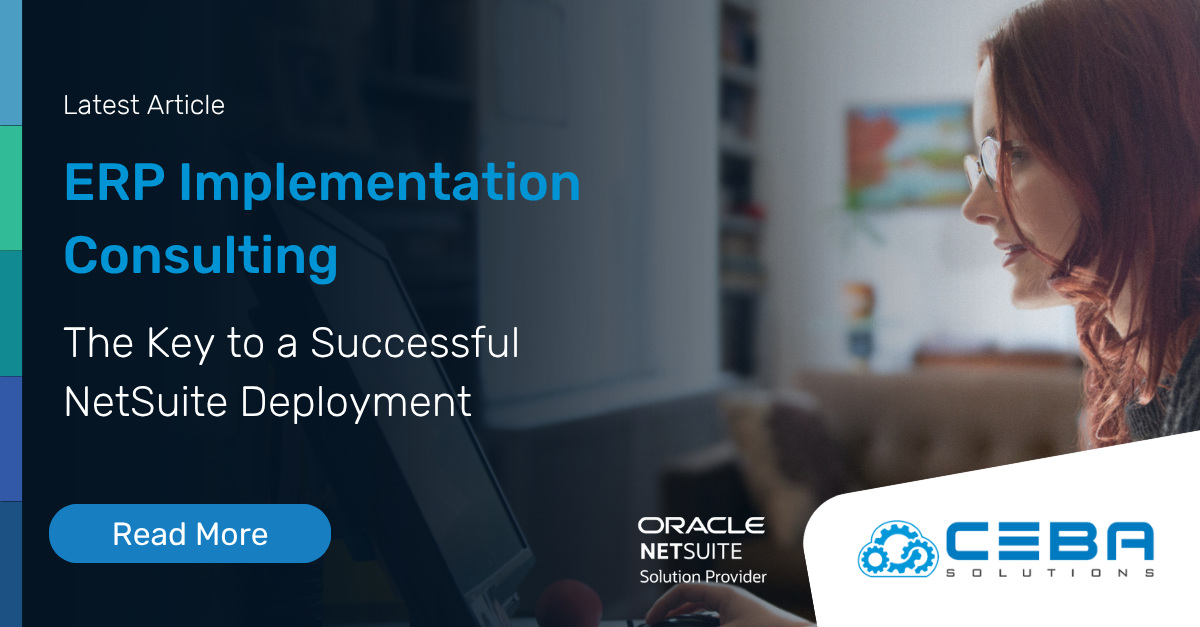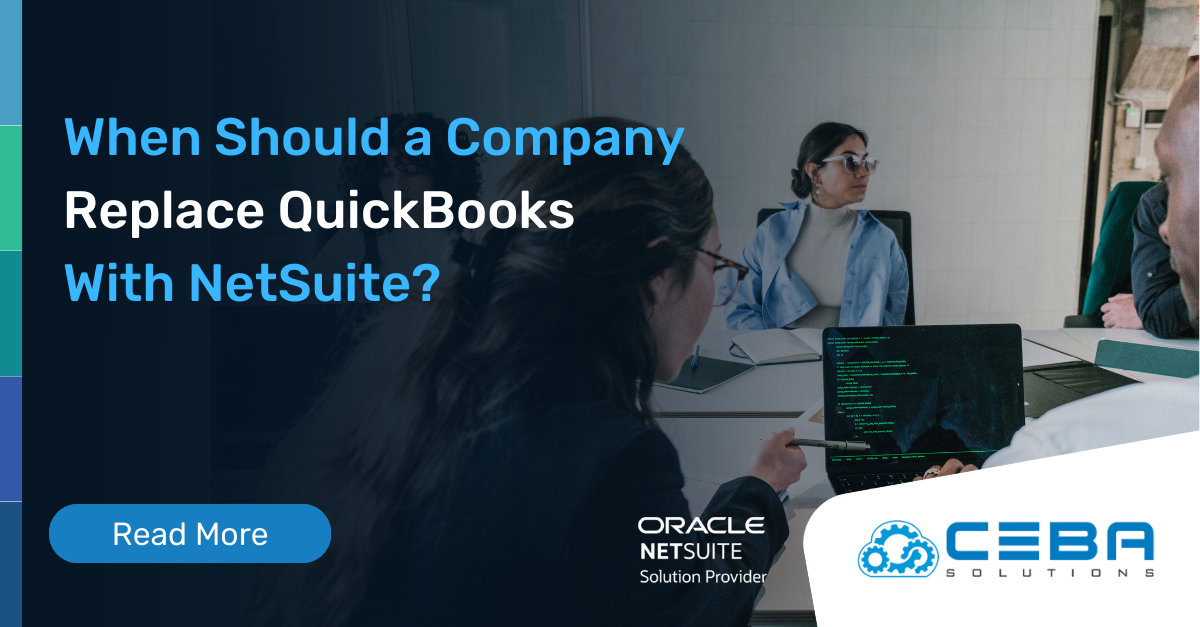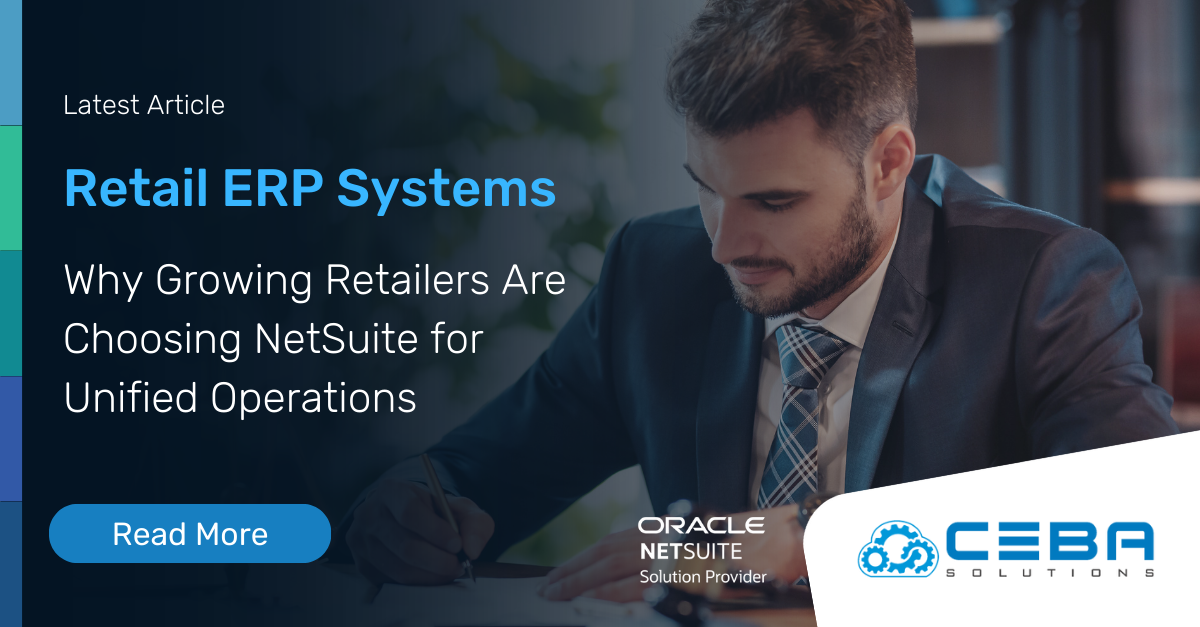
10 Reasons all B2C Companies Need ERP Integration
10 Reasons all B2C Companies Need ERP Integration
The ecommerce boom has opened new doors for retailers selling goods and services online, where business to consumer (B2C) buyers are shopping for everything from clothing to groceries to electronics, and everything in between. The trend took off during the early stages of the pandemic and hasn’t waned at all.
According to Mastercard SpendingPulse, 2022 kicked off with gains across nearly all retail sectors. In January, U.S. retail sales increased by 7.2% year-over-year (YOY), with online sales growing 10.4% (compared to January 2021).
“Despite the shadow of Omicron and elevated inflation, consumer spending was buoyed by pent-up savings, wage growth and the continued re-opening of the ‘experience economy,’” Mastercard reports. “Beneficiaries included department stores, apparel and luxury, which all saw double-digit growth.”
To harness this double-digit growth, B2C companies need robust, unified technology systems that can effectively manage their multifaceted, omni-channel operations. Factor in the persistent labor shortage, supply chain disruptions and changing consumer preferences, and the need for a modern, cloud-based enterprise resource planning (ERP) platform becomes even greater for B2C firms.

Five reasons why retailers are turning to integration technologies to help their businesses thrive in challenging times.
Here are five more “wins” that B2C companies get when they work with CEBA Solutions to implement NetSuite Cloud ERP:
1. Increased Customer Expectations
The rise of ecommerce has changed customer expectations, who now demand a personalized, convenient and consistent shopping experience across all channels. A study by Boston Consulting Group found that 77% of customers have switched brands due to a poor customer experience.
To meet these heightened expectations, retailers need to provide an omnichannel shopping experience, which can be accomplished by integrating all customer touchpoints, including in-store, online, call center, social media and mobile. This way, shoppers can move seamlessly between channels without losing track of their purchase history or preferences.

2. Improved Decision Making
In order to meet customer expectations and stay ahead of the competition, retailers need to make real-time decisions based on accurate data. This is only possible with a single source of truth that can be accessed by all decision-makers across the company.
An ERP integration platform pulls data from all departments and disparate systems into one central location, giving executives a complete picture of the business and customers. With this information, they can make informed decisions about pricing, promotions, product assortment, inventory levels and much more.
3. Enhanced Customer Data
To create a personalized shopping experience for each customer, retailers need to have a complete understanding of their preferences, behaviors and purchase history. This data is typically spread across multiple systems, making it difficult to get a complete picture of the customer.
An eCommerce integration platform can help retailers unify this data, providing them with a 360-degree view of the customer. With this information, they can create targeted marketing campaigns, personalize the shopping experience and make recommendations based on previous purchases.
4. Increased Efficiency
Many retailers are still using manual, paper-based processes to manage their operations. This is not only time-consuming and error-prone, but it also makes it difficult to track and analyze data.
An integration platform can automate these manual processes and workflows, increasing efficiency and reducing errors. For example, a retailer can use an integration platform to automatically update inventory levels across all channels in real-time, ensuring that customers can always find the products they are looking for.
5. Reduced Costs
An integration platform can also help retailers reduce costs by consolidating disparate systems and automating manual processes. By eliminating duplicate data entry and paper-based workflows, retailers can free up time and resources to focus on more strategic initiatives.
In addition, an integration platform can help retailers avoid the costly mistakes that can occur when manually managing inventory levels. For example, if inventory is not updated in real-time, a customer might purchase an item that is no longer in stock, resulting in a lost sale.
6. An excellent customer experience
Customers aren’t just clicking and buying; they want a shopping experience that emulates - or, surpasses - what they’d get in person at a retail store. Using NetSuite’s SuiteCommerce, companies can deliver engaging, relevant online experiences for their customers. They can also drive more traffic to their websites, convert shoppers into paying customers and grow their online revenues.
7. No more disparate systems
Trying to work across multiple different legacy systems, disparate applications and spreadsheets is a failed approach for today’s B2C companies, which need a centralized data repository and single source of truth that all associates can rely on. NetSuite unifies ecommerce, point of sale (POS), inventory and order management, marketing, customer service and financials on a single platform that everyone can work from.
8. Centralized sales data
A key benefit of ERP integration for companies is the centralization of sales information from different areas of the business. “Omnichannel functionality is a key aspect to consider when looking for a solution,” SelectHub points out, “especially if your company conducts sales in multiple locations (e.g., brick and mortar stores, online, catalogs, etc.). “It can be difficult to keep sales information organized, especially when it comes from several disparate platforms. That’s why ERPs consolidate the information to make insight development more efficient.”
9. Real-time operational visibility
With an ERP in place, B2C companies can consolidate fragmented data sources into a single repository that powers informed, timely business decisions. Instead of “guessing” at what items are in stock and available to ship, firms have a solid grasp of what’s on hand and what needs to be ordered. This helps them avoid both stockouts and overstocks and ensures a reliable source of supply when customers ask for it.
10. Fewer data errors and better productivity
ERP can help increase operational productivity by connecting various workflows and automating the exchange of information. It also automates bank reconciliations, the distribution of shipping notifications and other tasks that would otherwise require manual intervention. “By boosting productivity, businesses can conduct more operations in the same amount of time and increase output,” SelectHub states. “[They] can also optimize workflows through automation capabilities, which can lead to less time wasted correcting human errors or spot-checking documents.”
With the total market share of online retail sales now higher than that of general merchandise, the need for ERP integration in the B2C sector will only increase. Global ecommerce sales are on track to reach nearly $5.55 trillion by the end of 2022—up from $1.3 trillion in 2014. There’s no better time for B2C companies to explore their ERP options and find a scalable, adaptable platform that will grow right along with them.

Download the Ultimate Guide to Oracle NetSuite
Learn why NetSuite is the #1 Cloud ERP for Small and Mid Size Businesses Focused on Unlocking Growth. Download the Guide
Why Choose CEBA Solutions for your ERP Integrations?
CEBA Solutions is a long-time Oracle NetSuite Solution Partner that can help your company select, implement and optimize its ERP system and other solutions. We’ll provide as much - or, as little - guidance as you require throughout the process, post go-live and throughout the life of your ERP.
Our expertise extends to NetSuite, Celigo, Magento and more.
We have a team of in-house NetSuite experts who can help you take full advantage of this powerful cloud platform, including development, implementation, integration, customization and ongoing management. Our technical capabilities are supported by industry-specific expertise and best practices.









